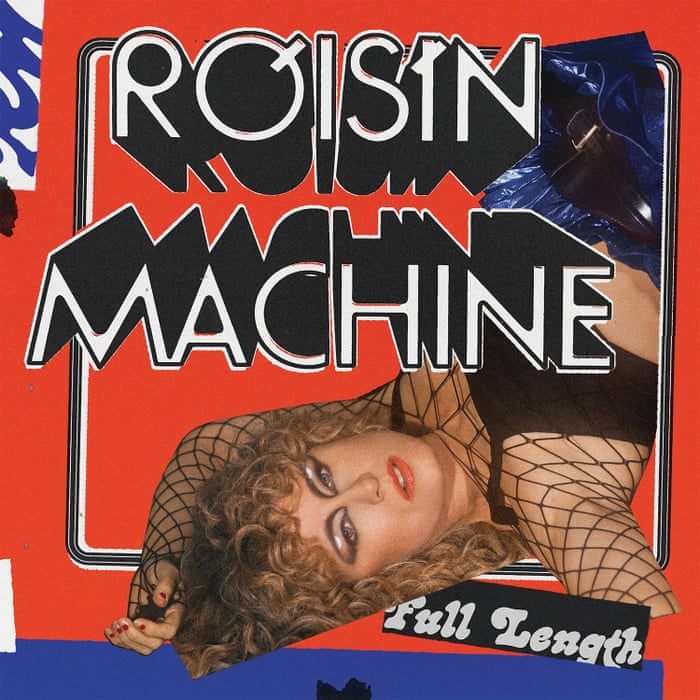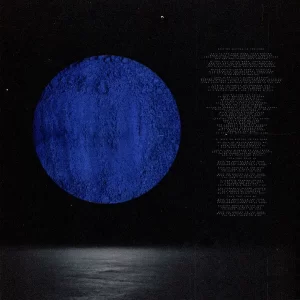
In this week’s new music reviews: a Colombian, an anonymous collective, and an Irishwoman walk into a bar……
Ela Minus
Acts of Rebellion

Gabriela Jimeno started her career as the drummer for Colombian hardcore band Ratón Pérez – they became big enough to play at festivals like SXSW. She moved to the US, where she became interested in electronic music and worked making synthesisers.
Her techno-pop is often retro-tinged – she aims to make music that she can recreate live on stage, working with an array of hardware synthesizers. She’s influenced by Radiohead and by 1970s electronic legends Kraftwerk. Like Kraftwerk, she’s not singing in her first language, and she has a slightly stilted delivery that’s part of her appeal and which also recalls Brian Eno’s vocal records from the 1970s. “Today I woke up at 7….pm” is the opening line to ‘Dominique’. Improbably, her vocals are simultaneously assertive, pretty, and robotic.
Minus originally planned a double album, but honed a wide selection of tracks into a tight 34 minute record. Peaceful instrumentals like ‘Pocket Piano’ give Acts of Rebellion balance, but the distinguishing feature are the vocal tracks. Minus’ vocals are mixed low on ‘Megapunk’, subsumed into the track’s electronic urgency. Helado Negro duets with Minus on the pretty ‘Close’, and the pulsating portrait of disconnection on ‘Dominique’ is the disc’s most memorable piece.
Acts of Rebellion is an amazingly accomplished debut record, with Minus marrying memorable songwriting to her electronic mastery.
Sault
Untitled (Black Is)

Confusingly, I’ve already reviewed Sault’s second album of 2020, September’s Untitled (Rise) – this record, Untitled (Black Is), was released back in June. The mysterious British collective have developed a distinctive aesthetic, a minimalistic sound that draws on genres like gospel, Afrobeats, soul, and disco. The group have enjoyed a lot of critical acclaim since sneaking out two records mysteriously in 2019 – several year end lists have placed Untitled (Rise) and Untitled (Black Is) at the top. Their music’s on point for 2020, covering themes like black empowerment.
Sault’s rapid release schedule has meant that all of their records feel like one continuous body of work, but of their two 2020 records, Black Is is my preferred one. Key tracks include ‘Bow’ with guest vocalist Michael Kiwanuka, where the African rhythms and acid guitar fill out their sound more than usual.
‘Wildfires’ is gorgeous, perhaps bearing a little imprint of 1990s trip hop alongside soul, but the subject matter is serious, speaking out against police brutality. ‘Eternal Life’ is pretty gospel, while ‘Monsters’ builds off an ominous synth riff.
Their minimalist sound isn’t my preference, but there’s a lot of amazing material on Sault’s two 2020 discs, especially on Untitled (Black Is).
Róisín Murphy
Róisín Machine

It’s been a significant year for disco-revival – Jessie Ware, Kylie Minogue, and Ireland’s Róisín Murphy have all released disco flavoured albums. Murphy started her career in trip-hop act Moloko in the 1990s, and she’s known for her eccentric art-pop. She brings the same off-centre sensibility to this disco record.
Róisín Machine is Murphy’s fifth album, but it’s effectively self titled – the album title helps everyone pronounce her name, while ‘Murphy’s Law’ is a key track. It’s also notable for its long genesis – ‘Incapable’ was written in 2010, while ‘Simulation’ was released as a single back in 2012. Murphy has released two albums in the meanwhile, but Róisín Machine collects Murphy’s collaborations with producer Richard Barratt, and it makes sense as a coherent record.
The longer tracks wend their way through different sections like twelve inch singles. ‘Murphy’s Law’ is the centrepiece here, my favourite track of the year, with Murphy’s husky and theatrical vocals backed by house piano and scratchy guitars.
‘Murphy’s Law’ is invariably the song that I want to hear when I switch on Róisín Machine, but Murphy’s odd and charismatic disco is always interesting. ‘Narcissus’ is a compellingly odd reflection on the Greek legend, while ‘Incapable’ gets a lot of mileage from its simple keyboard riff.
Róisín Machine hits a nice balance between approachable tunes and off-centre weirdness, a personality-driven disco record.
Read More
11 Comments
Leave a Reply
About
Aphoristic Album Reviews is almost entirely written by one person. It features album reviews and blog posts across a growing spectrum of popular music.
Review Pages
Read about the discographies of musical acts from the 1960s to the present day. Browse this site's review archives or enjoy these random selections:
Blog Posts
I add new blog posts to this website every week. Browse the archives or enjoy these random selections:





















Sault’s been productive!
Yup – there was a solo album from one of the alleged members, Cleo Sol, this year too.
Róisín Murphy sounds and looks like she walked out of the early eighties on this particular song.
Maybe a bit like late-1970s Donna Summer too.
Enjoyed both Minus and Sault.
I’ve just been listening to Cleo Sol, which is reportedly a Sault spinoff. I think I like it a little more – has a fuller sound.
I liked the first two (and I dig Michael Kiwanuka), but disco? Fair play to you!
Disco’s pretty big right now. My six year old designed and drew a palace this week and she included a guinea pig room and a disco room.
Ah well, everything comes back around. 2020 had to give us disco, eh? I do like the guinea pig room, though. That’s a great idea!
I like those old Donna Summer 12 inch singles – I think there’s a bit of greatness in some disco, maligned as it is. Also, glossy escapism works especially well in 2020.
Well sure, there’s some ok stuff in there, but for some reason this year I’ve gone more for stoicism rather than escapism…